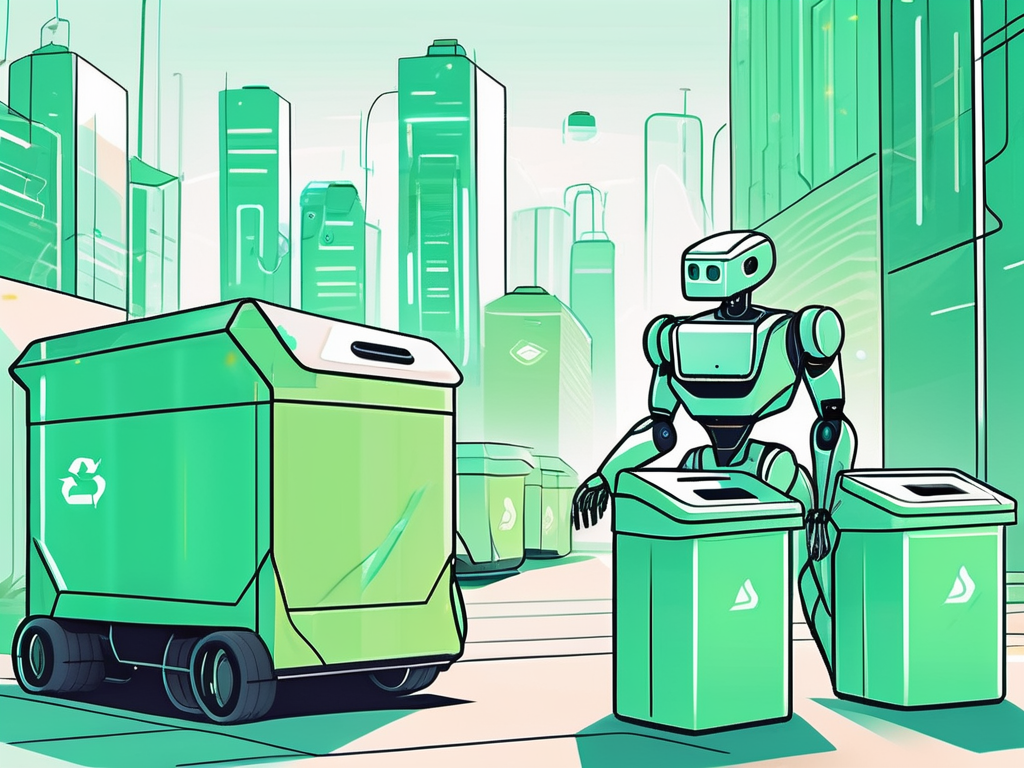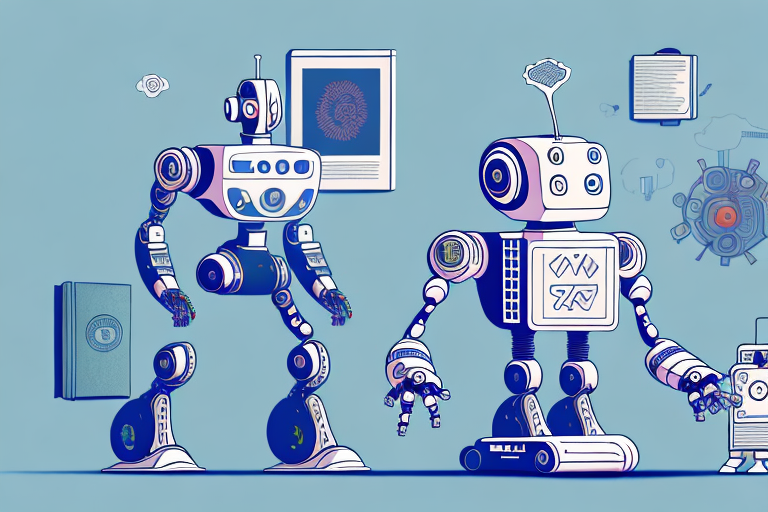.svg)
How AI Agents Improve Waste Management Systems
.svg)

In recent years, Artificial Intelligence (AI) has emerged as a transformative force across various industries, and waste management is no exception. As urban populations burgeon and environmental concerns mount, the need for efficient and sustainable waste management solutions becomes ever more pressing. AI agents, with their ability to process vast amounts of data and learn from it, offer innovative solutions to optimise waste management systems, reduce costs, and minimise environmental impact.
The Role of AI in Waste Management
Data Collection and Analysis
AI agents excel in collecting and analysing data, which is crucial for effective waste management. By deploying sensors and IoT devices across waste collection points, AI systems can gather real-time data on waste levels, types, and collection frequencies. This data is then processed to identify patterns and trends, enabling waste management companies to make informed decisions about resource allocation and operational strategies.
Moreover, AI-driven data analysis helps in predicting waste generation patterns. By understanding these patterns, municipalities and waste management firms can anticipate peak waste periods and adjust their operations accordingly. This proactive approach not only improves efficiency but also reduces the likelihood of overflow and environmental contamination.
Optimising Collection Routes
One of the most significant contributions of AI in waste management is the optimisation of collection routes. Traditional waste collection often follows fixed schedules and routes, which may not align with actual waste generation patterns. AI agents use real-time data and machine learning algorithms to design dynamic collection routes that minimise travel distance and time. This not only reduces fuel consumption and emissions but also lowers operational costs.
Furthermore, AI can adapt to unforeseen circumstances, such as road closures or traffic congestion, by recalibrating routes in real-time. This flexibility ensures that waste is collected efficiently, even in the face of logistical challenges, thereby enhancing the overall reliability of waste management services.
Enhancing Recycling Processes
Automated Sorting Systems
Recycling is a critical component of sustainable waste management, and AI plays a pivotal role in enhancing recycling processes. AI-powered automated sorting systems use computer vision and machine learning to identify and categorise different types of waste materials. These systems can distinguish between plastics, metals, paper, and other materials with remarkable accuracy, significantly reducing the reliance on manual sorting.
By improving the precision and speed of sorting, AI systems increase the efficiency of recycling facilities, leading to higher recovery rates and reduced contamination. This not only conserves resources but also lowers the environmental footprint of waste management operations.
Predictive Maintenance of Recycling Equipment
AI agents are also instrumental in maintaining the operational efficiency of recycling equipment. Through predictive maintenance, AI systems monitor the condition of machinery and predict potential failures before they occur. By analysing data from sensors and historical maintenance records, AI can identify patterns indicative of wear and tear or impending malfunctions.
This proactive approach to maintenance minimises downtime and extends the lifespan of recycling equipment. Consequently, recycling facilities can operate more smoothly and cost-effectively, ensuring a steady flow of materials through the recycling process.
Reducing Environmental Impact
Minimising Landfill Usage
AI agents contribute to reducing landfill usage by optimising waste diversion strategies. By analysing data on waste composition and generation, AI systems can recommend alternative disposal methods, such as recycling, composting, or energy recovery. This targeted approach ensures that only non-recyclable and non-recoverable waste ends up in landfills, thereby conserving valuable land resources and reducing greenhouse gas emissions.
Additionally, AI can assist in monitoring landfill conditions, such as methane emissions and leachate levels. By providing real-time data and predictive insights, AI systems enable waste management authorities to implement timely interventions and mitigate environmental risks associated with landfill operations.
Promoting Circular Economy Practices
The concept of a circular economy, where waste is minimised, and resources are reused, is gaining traction worldwide. AI agents facilitate the transition to a circular economy by identifying opportunities for resource recovery and reuse. Through data analysis and machine learning, AI systems can pinpoint materials that can be repurposed or recycled, promoting a more sustainable approach to resource management.
Furthermore, AI-driven platforms can connect businesses and consumers with recycling and reuse opportunities, fostering collaboration and innovation in waste management. By promoting circular economy practices, AI agents help reduce the environmental impact of waste and contribute to a more sustainable future.
Challenges and Considerations
Data Privacy and Security
While AI offers numerous benefits for waste management, it also raises concerns about data privacy and security. The collection and analysis of vast amounts of data necessitate robust security measures to protect sensitive information. Waste management companies must ensure that data is collected and stored in compliance with relevant regulations and standards, safeguarding against potential breaches and misuse.
Moreover, transparency in data usage is essential to build trust with stakeholders, including local communities and regulatory bodies. Clear communication about how data is collected, processed, and utilised can alleviate privacy concerns and foster public confidence in AI-driven waste management solutions.
Integration with Existing Systems
Integrating AI agents into existing waste management systems can be challenging, particularly for organisations with legacy infrastructure. Successful integration requires careful planning and collaboration between technology providers and waste management operators. It is crucial to ensure that AI solutions are compatible with existing systems and processes, minimising disruption and maximising the benefits of AI adoption.
Training and support are also vital components of successful integration. Waste management personnel must be equipped with the skills and knowledge to operate and maintain AI systems effectively. Ongoing training and support can help organisations overcome initial hurdles and fully leverage the potential of AI in waste management.
The Future of AI in Waste Management
Innovations on the Horizon
The future of AI in waste management is promising, with ongoing research and development paving the way for new innovations. Emerging technologies, such as advanced robotics and autonomous vehicles, hold the potential to revolutionise waste collection and processing. These innovations, powered by AI, could further enhance efficiency and sustainability in waste management systems.
Additionally, the integration of AI with other technologies, such as blockchain, could improve transparency and traceability in waste management operations. By providing a secure and immutable record of waste transactions, blockchain can enhance accountability and promote responsible waste management practices.
Global Collaboration and Knowledge Sharing
As AI continues to transform waste management, global collaboration and knowledge sharing will be essential to maximise its benefits. By sharing best practices and lessons learned, countries and organisations can accelerate the adoption of AI-driven solutions and address common challenges. International partnerships and initiatives can also facilitate the development of standardised frameworks and guidelines for AI in waste management.
Ultimately, the widespread adoption of AI in waste management has the potential to create more sustainable and resilient communities. By harnessing the power of AI, we can address the pressing challenges of waste management and pave the way for a cleaner, greener future.
Related Posts
Let's
Let’s discuss how we can bring reinvigorated value and purpose to your brand.







.svg)